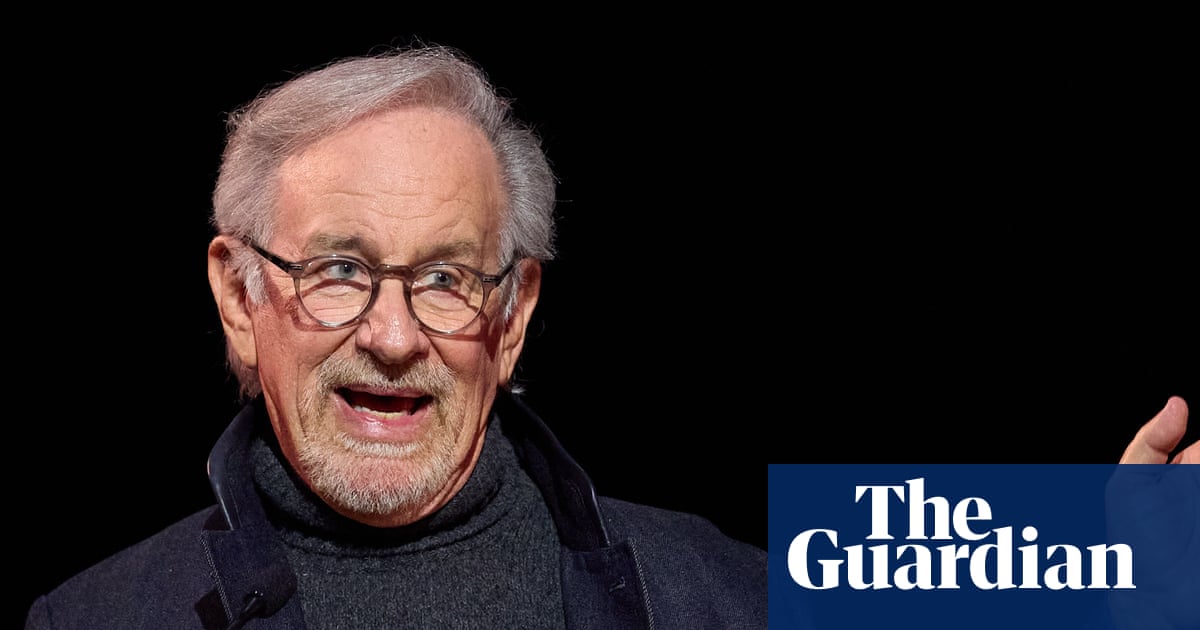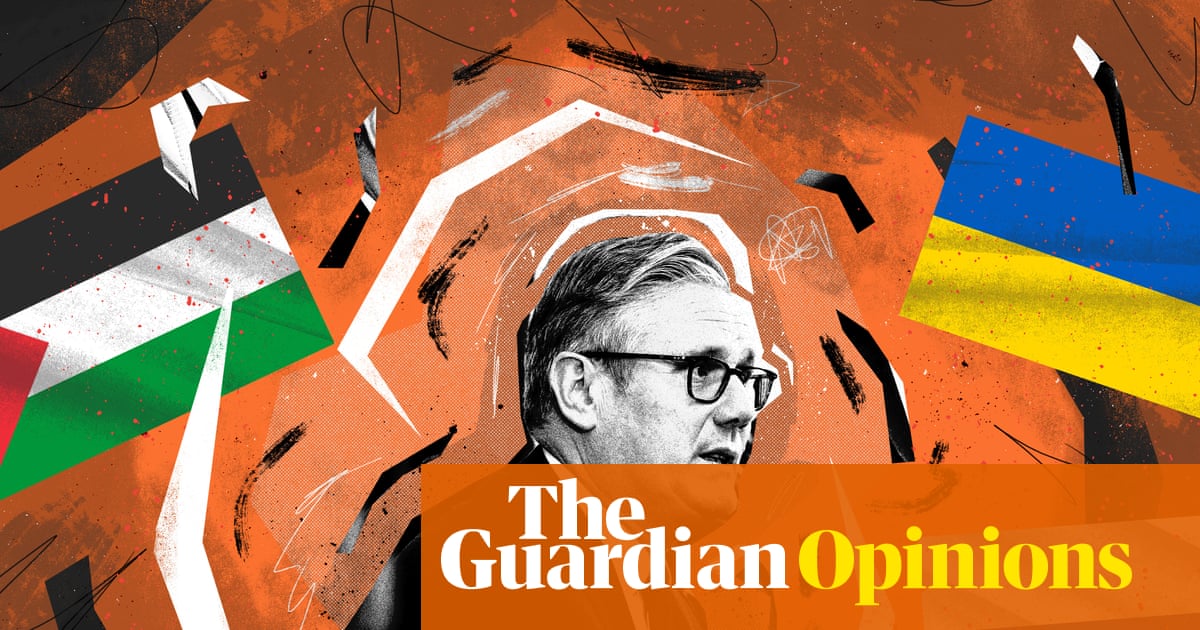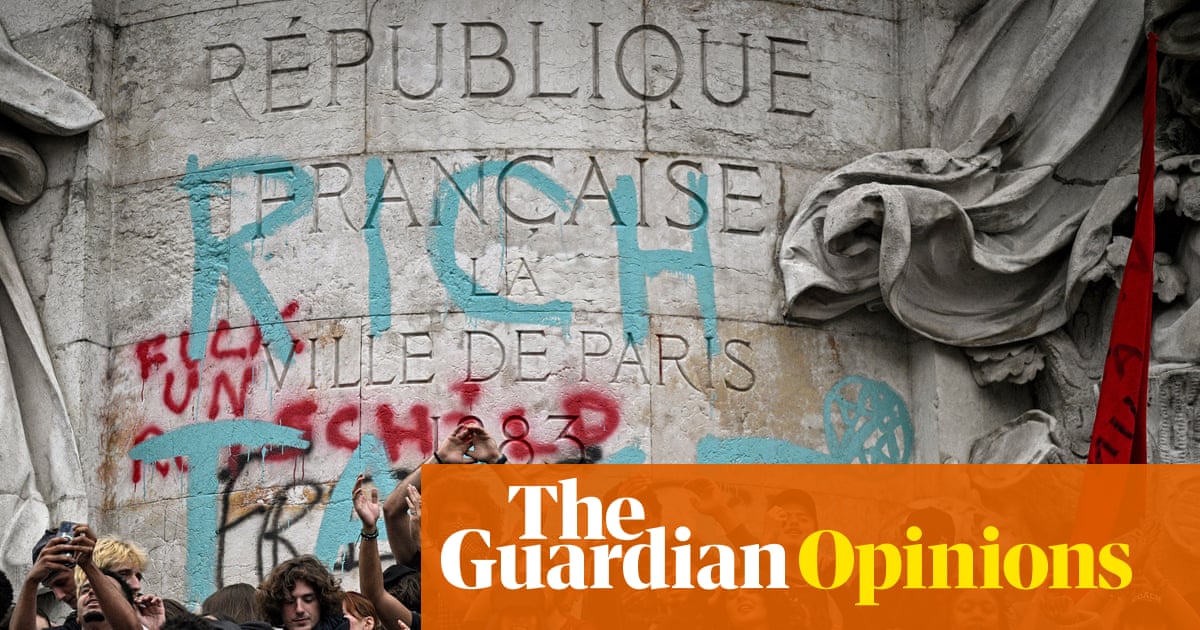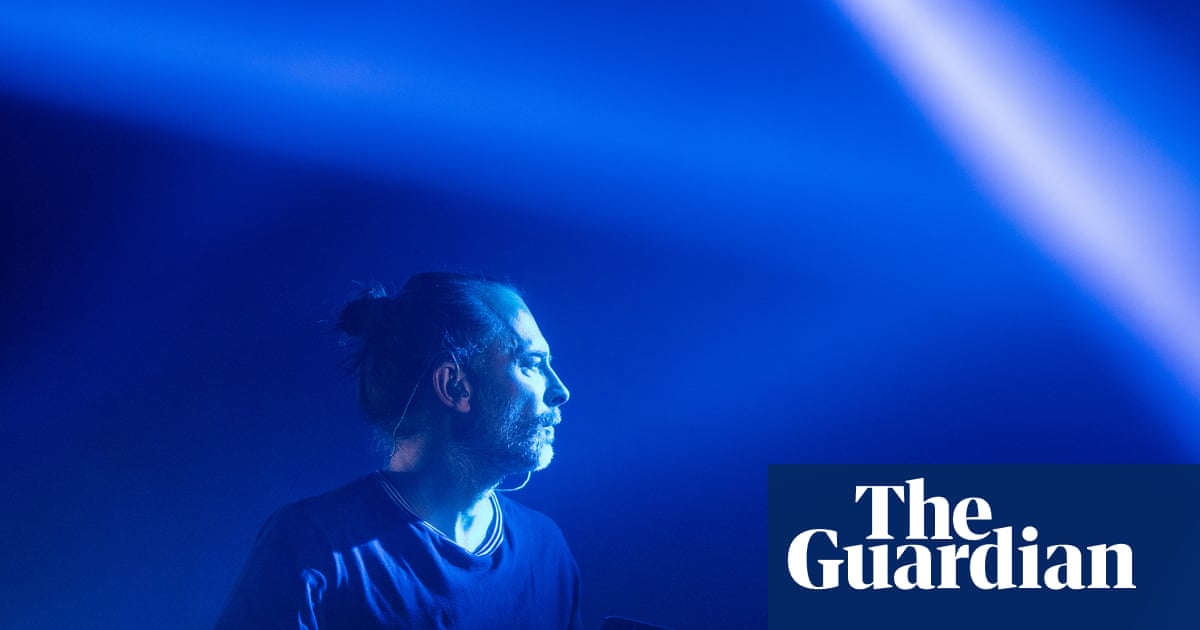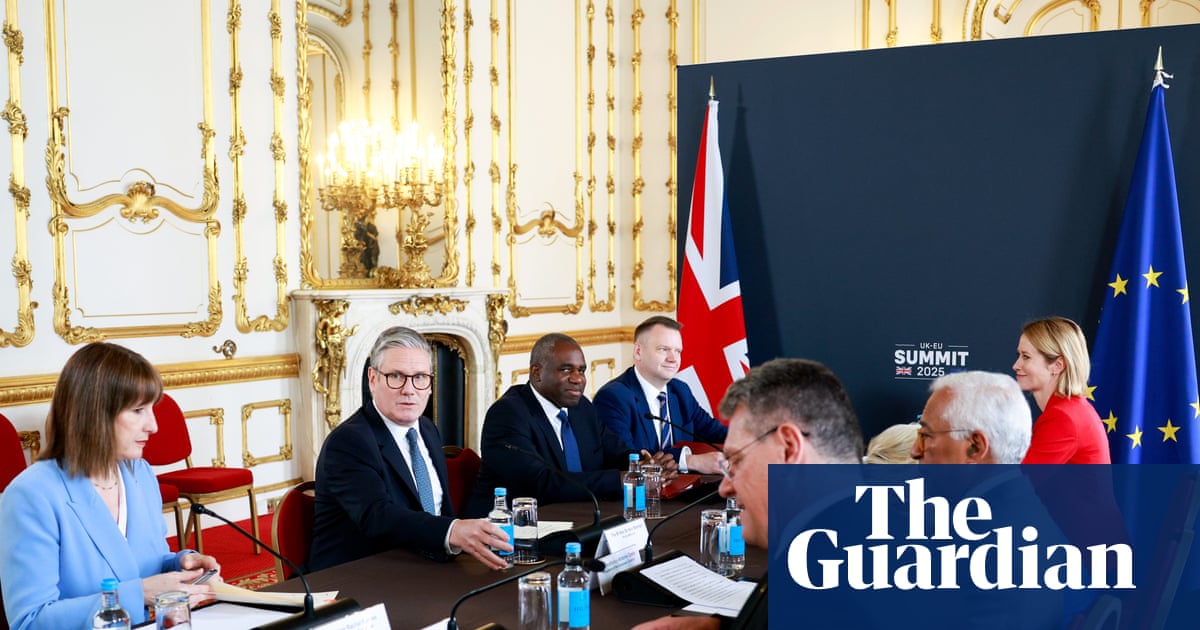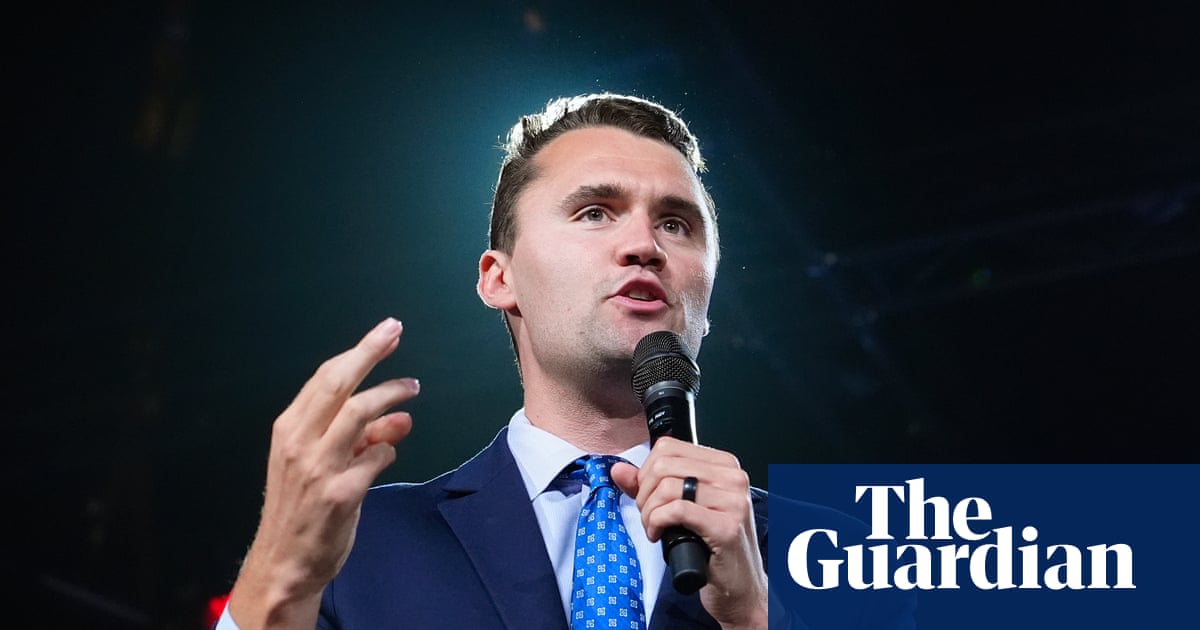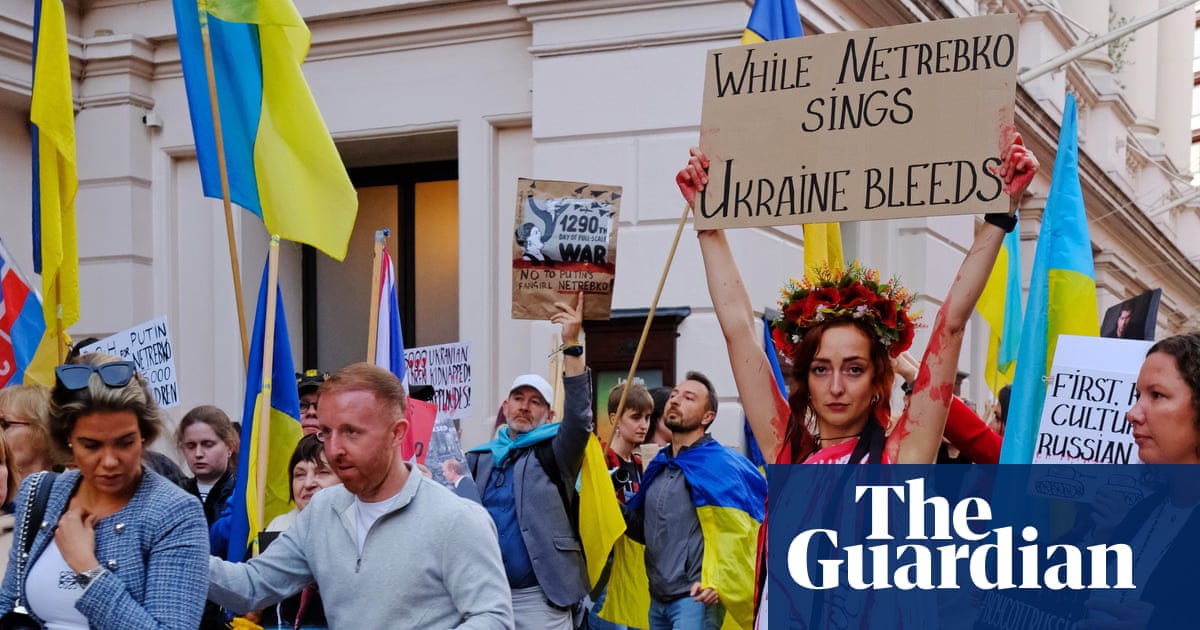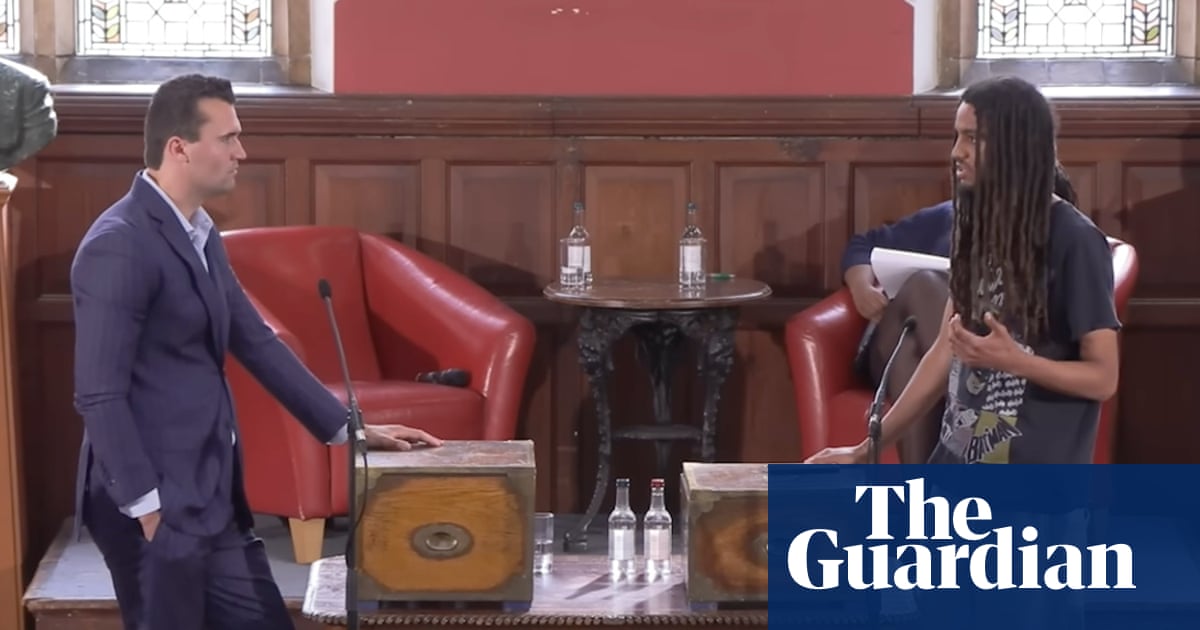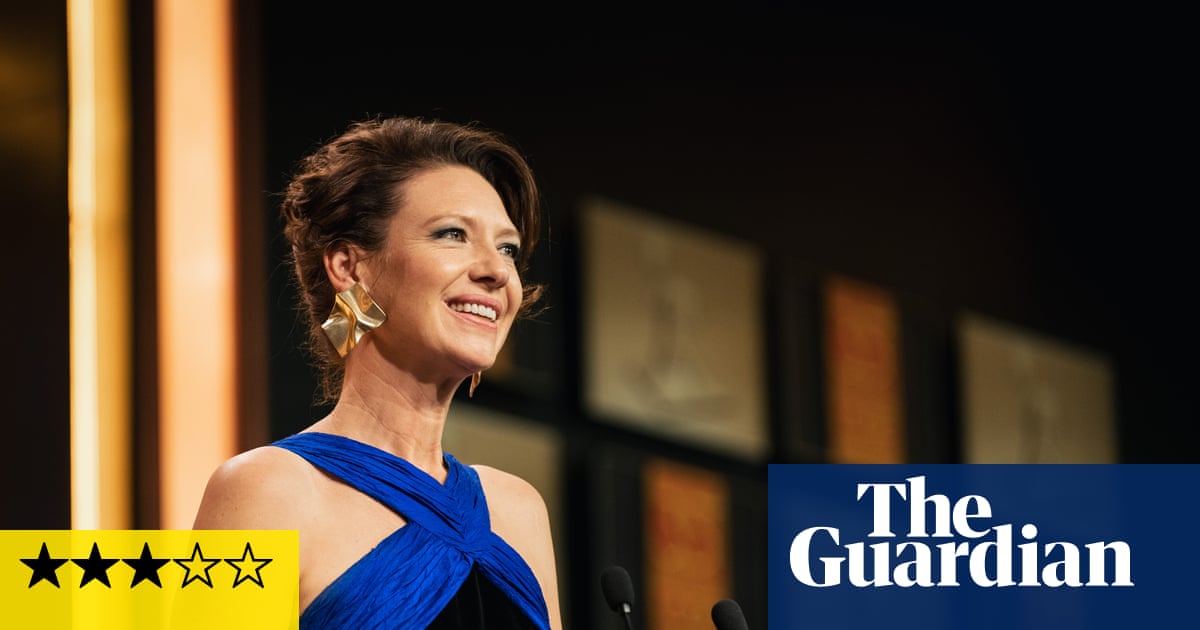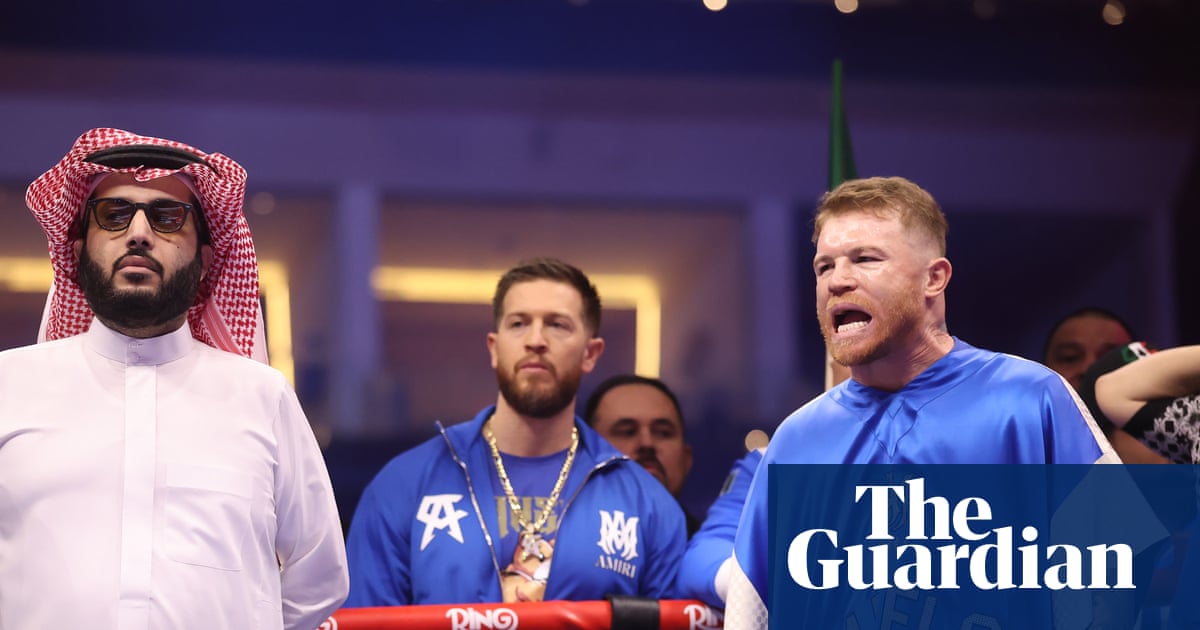These are the days you’re here for, the moments that give it all meaning, Giovani Lo Celso says. At Real Betis’s Luis del Sol training ground in the south of a city that smells of orange blossom, swallows swoop through the sunshine to mud nests wedged into the wall of the white storehouse where the lawnmowers go. Rainbows appear in the sprinkler spray on the pitch where the session has just finished, last preparations before flying to Poland for the Conference League final against Chelsea. There’s a line they are proud of here, a design for life: Viva er Betis, manque pierda. Long live Betis, even if they lose. And if they win? If they win, this may just be the biggest thing that has ever happened to them.
On Lo Celso’s right calf is a football tattoo – old school and cartoonish with black and white hexagons – and the date of his debut, for Rosario Central in 2015. On his left is the Copa América, wrapped in an Argentina flag. He has won it twice, in 2021 and 2024. He also won a treble in France. Oh, and played a League Cup final with Tottenham – and, yes, he did watch them in Bilbao. “But I put this right up there, on the same level as those finals,” he says, settling on to a bench in the shade.
“As a player you dream of playing games like this, and all the more so for a club like this, which is very passionate,” Lo Celso says. “Every final is special, and this is lovely for the club. It’s a long time since we got here, to a moment like this.” A long time … or never. Betis have won one league title, led there by the Irish coach Patrick O’Connell in 1935. In the 50s, they fell as far as the third division, which is where manque pierda came in, and often they did lose. They have won three cups: in 1997, 2005 and 2022. They have never been in a European final before. Now here they are. For some clubs, the Conference League may not be a competition that moves them much, but this means everything to them.
These are the best days they have had. A club that was in the second division 10 years ago – this is their longest consecutive run in the top flight – have qualified for Europe every year for the last five seasons. “If I had said that would happen when I came, they would have sent me home on the grounds that I was mad,” says Manuel Pellegrini, the coach who has taken them there, changing everything. “We found a way to bring an ambition and mentality that wasn’t there before.”
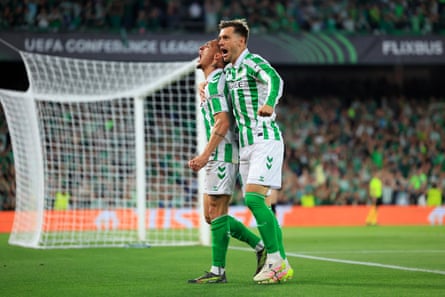
“Within football everyone respects Manuel, appreciates him, especially here in the city,” Lo Celso says. “There’s an authority about him, leadership. He brings us a real calm, and that’s very important for a player. He gives you freedom as a player, but also the structure and the tools you need to be your best. He’s done well at every club, this is just another example and we’re grateful.”
Gratitude is a good word. For Pellegrini, but also for something beyond the 71-year-old’s guidance, his commitment to naturing talent, the ecosystem he has built. It’s about the club, the place: this is somewhere players come to be revived. “Betis changed my life,” their captain, Marc Bartra, says. Isco had been out of work for six months, forgotten and seemingly finished, and is now back in the Spain squad at 33: he described Betis as “my light in the darkness”. The Manchester United winger Antony insists: “I always say I found myself here.” Extraordinary since his arrival, he wants to stay.
There’s something about Betis. “Its people,” Lo Celso says. They’re different, funny, warm. Only three clubs in Spain have more members and few fans are louder or more loyal. They are also everywhere, the Andalusian diaspora depositing them all over the peninsula. A remarkable 30,500 of them turned out to watch their team train the day before the derby this season. “Betis are big because of its people,” Lo Celso says. “That makes the climate very special for a player. It’s about the way football is lived in this city and the club has been able to make the most of that. When you go onto the pitch, there’s a feeling there, like you want to give them something back for all the support, all the care.”
Lo Celso had been at Betis in 2018-19 and wanted to go back, the decision to do so immediately vindicated. “It was five years earlier, but when I returned it felt like it was just last week,” he says. “It’s a club that makes you feel like you’re family.”
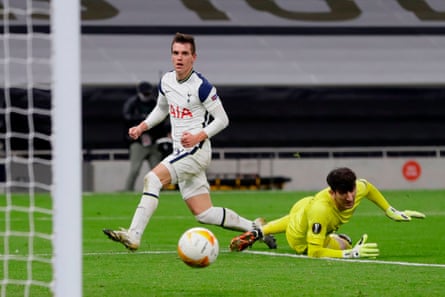
He arrived having just provided the assist for the only goal in the final at the Copa América. He had missed the World Cup through injury, leaving him in tears, although it had also allowed him to be there for the birth of his daughter: watching on television, his wife’s waters broke in the exact moment that Leo Messi scored against Mexico. Which is why after he provided the pass to Lautaro Martínez, teammate and room mate Rodrigo de Paul wrote: “[This is] the assist of your life and all of ours. You chewed poison, you suffered in silence and today you rubbed the lamp so that we could bring the cup home.”
There’s a moment’s silence, then Lo Celso says, quietly: “There’s a lot people don’t see.”
A lot. Lo Celso had left home at 19, a kid playing alongside Neymar, Cavani and Mbappé at Paris Saint-Germain. When Thomas Tuchel took over from Unai Emery, he found opportunities limited. Heading to Betis, though, he also found a home, and at Villarreal. At Tottenham, there were injuries and, in truth, a sense that he never entirely integrated nor felt that this was his place. The glimpses of quality that are constant in Spain were few in north London. Glimpses of him were too: he missed 65 games.
He also felt they hadn’t always been entirely straight with him; what they said and did wasn’t always the same thing. “Strange” is the word he uses but he’s not keen to use many others. Having been left out of the Spurs squad for the opening two games of the Premier League season, Betis offered him a way out. “He did a lot to make this deal possible,” the club’s president said.
He was Gio again, a gamechanger, a step above. He scored twice in his first start and found the net again in his second, third and fourth. Five goals in four matches – every goal that Betis scored. Three brief muscle injuries have affected his season, but there have been eight goals and three assists, a level above, everything elevated when he is there. The only debate has been whether there is a place for he and Isco, not least as Isco’s return to fitness and Betis’s revival coincided with Lo Celso being injured in February and March.
after newsletter promotion
“Choosing between Isco and Gio is like choosing between your mum and dad,” as Bartra put it. When Lo Celso recently scored a gorgeous goal against Espanyol, assisted by Isco, Pellegrini seized on it. “This ends the debate about Isco and Gio. Good players can always play together,” he said. They started the semi-final second leg together. The only small doubt over the XI for the final as Betis landed in Poland was Lo Celso, but that’s about fitness not form. Pellegrini wants him on the pitch, if he can. He wants to be there too.
“Lots of things happened there [at Spurs] but I’m in the place where I want to be and I’m very happy, enjoying this moment,” he says. “Players go through ups and downs; people don’t realise what’s happening sometimes. But we’ve overcome the difficulties we had and now we have a lovely opportunity to make history.”
Lo Celso has faced Chelsea six times and never won. There is a single draw among those games: 0-0 in November 2020. “I didn’t know that,” he says. “Well, now’s a good moment to change that. I’ve watched Chelsea a lot. They have a clear idea of how to play, very good players. But we have our qualities too. It doesn’t matter what form you’re in, who it is, whether they have rotated a lot. It would be nice to please Spurs fans too. I have a lot of affection for them and great friends playing there.”
Yet it’s not about them. It’s about Betis, their people, a lifetime waiting for this. Or, more accurately, not even waiting for this. “We know how big this is. How important: it’s a European final, for the first time in our whole history.”
Does that weigh on you? “No”. Why not?
“Because although it’s a final, it’s a football match. We know what it means. But it’s two teams, one game. We’re not thinking about what happens next, about what would happen if we win. We know the fans are excited. We’re just focused on the game, we want to try to enjoy it. These are the moments you dream of. It won’t be easy but we know that this is a chance to make a lot of people very happy.”

 3 months ago
87
3 months ago
87
